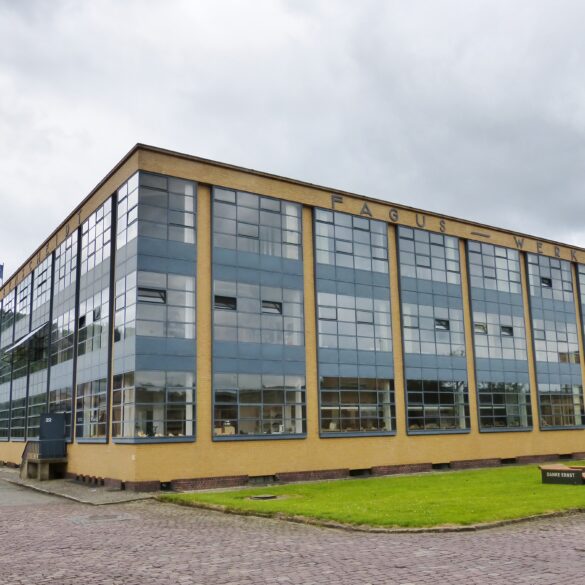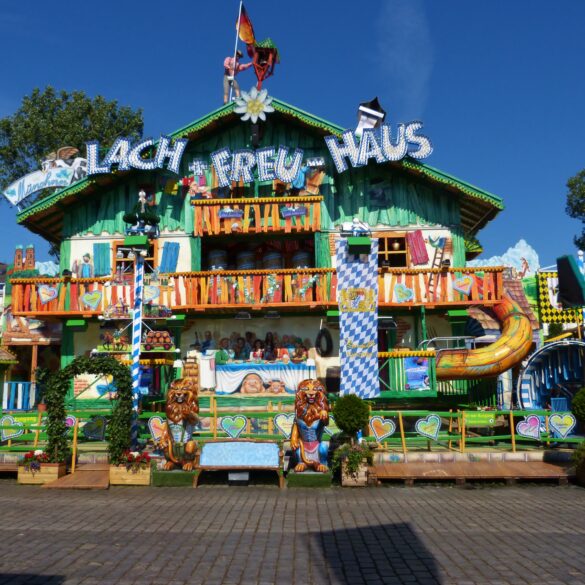The last full day of our long weekend in northern Germany started off with a drive to Wismar.
Like Stralsund LINK and Lübeck LINK, the two other cities we’d visited over the weekend, Wismar is known for its Brick Gothic architecture.
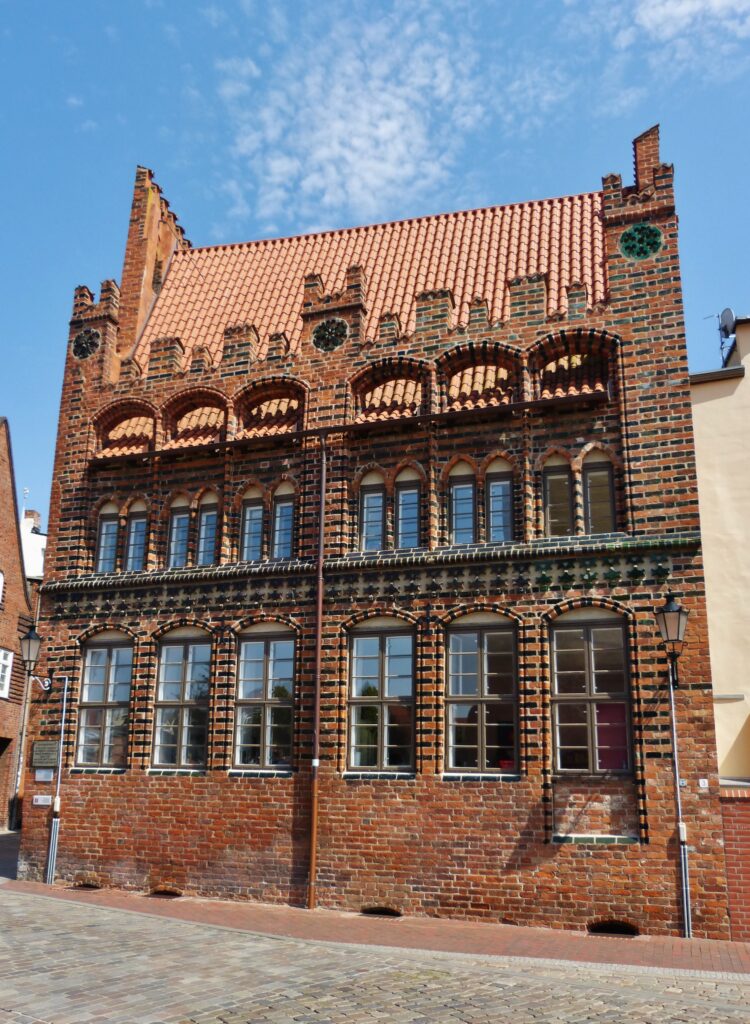
Along with Stralsund, Wismar makes up one half of a UNESCO World Heritage Site.
Another claim to fame for Wismar is that the 1922 vampire move Nosferatu was filmed there, and the 1979 remake Nosferatu the Vampyre took place there.
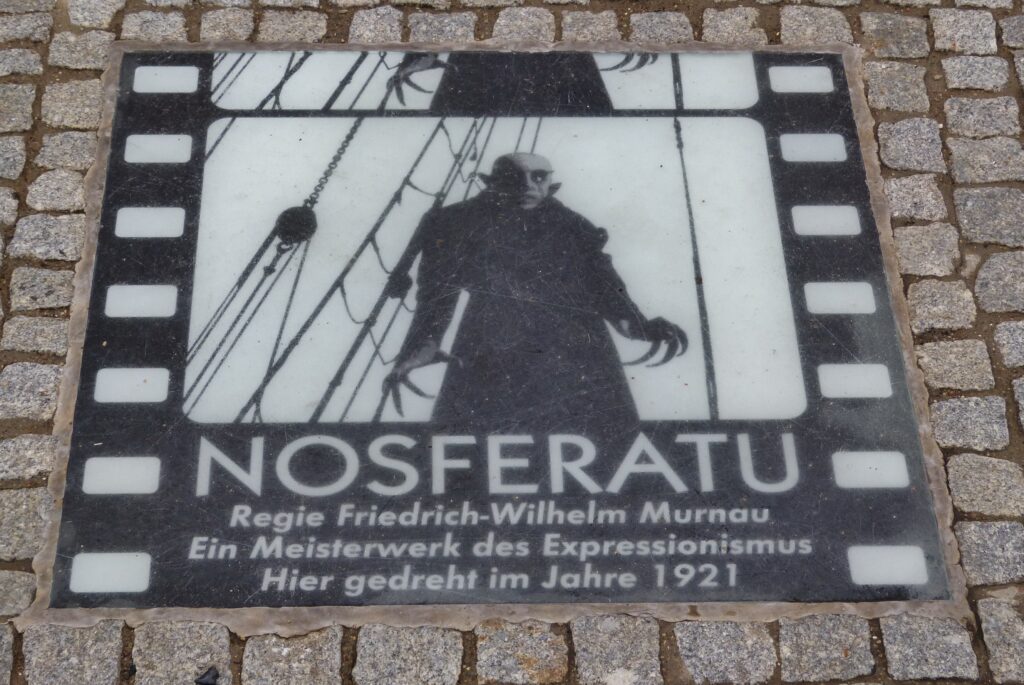
We saw several of those markers around the city where filming had taken place.
If you’ve spent any time in German cities, you’ve probably seen a Karstadt department store.
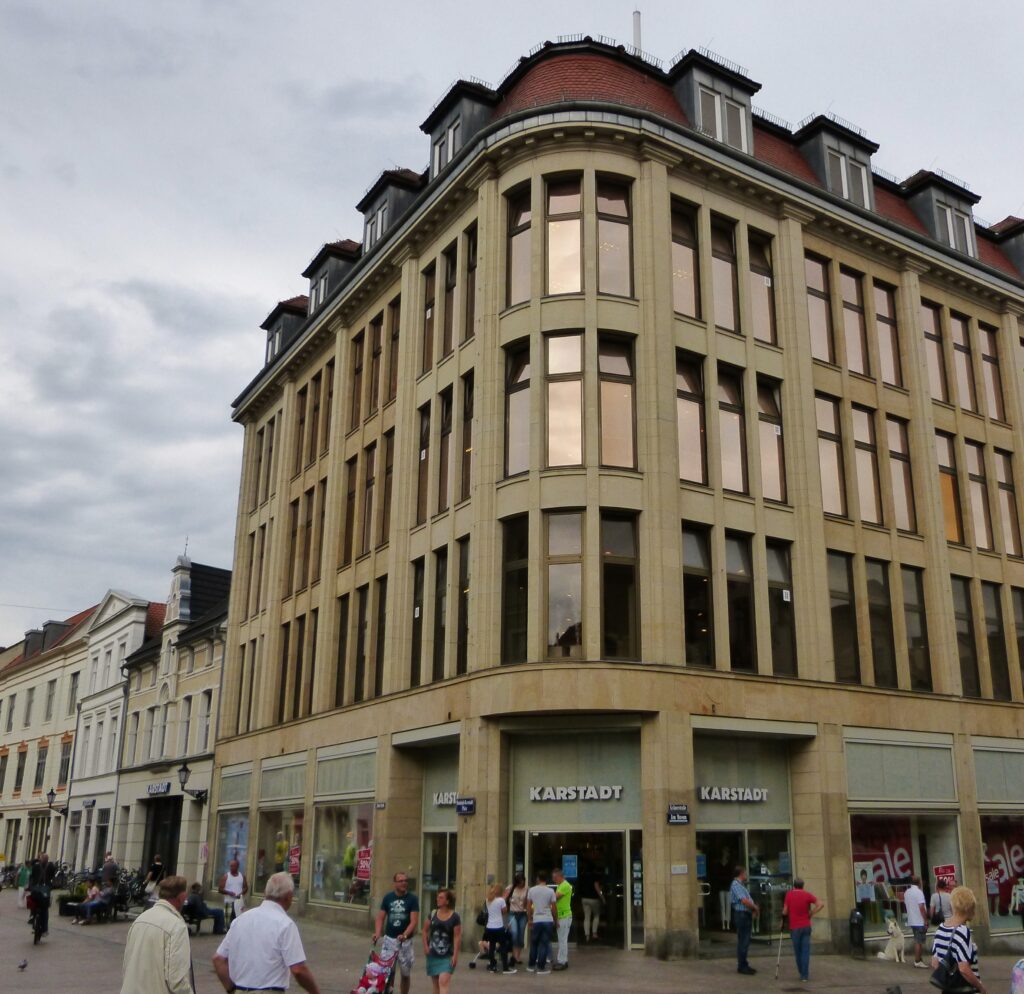
That building was the original headquarters of the chain, which now has over 80 stores.
I used to collect pigs and still have a bit of a soft spot for them, so of course I loved this.
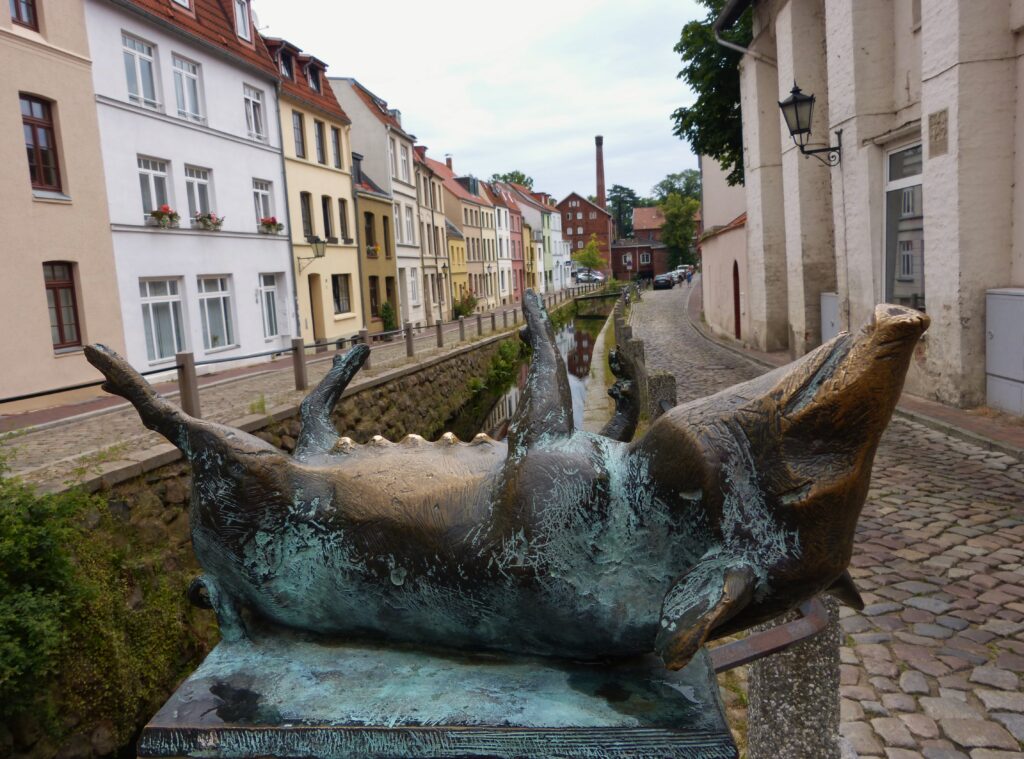
It’s called the Schweinsbrücke or Swine Bridge and it crosses an artificial waterway that leads to the Baltic Sea.
This building near the Schweinsbrücke is now the Civic History Museum, currently closed for renovation.
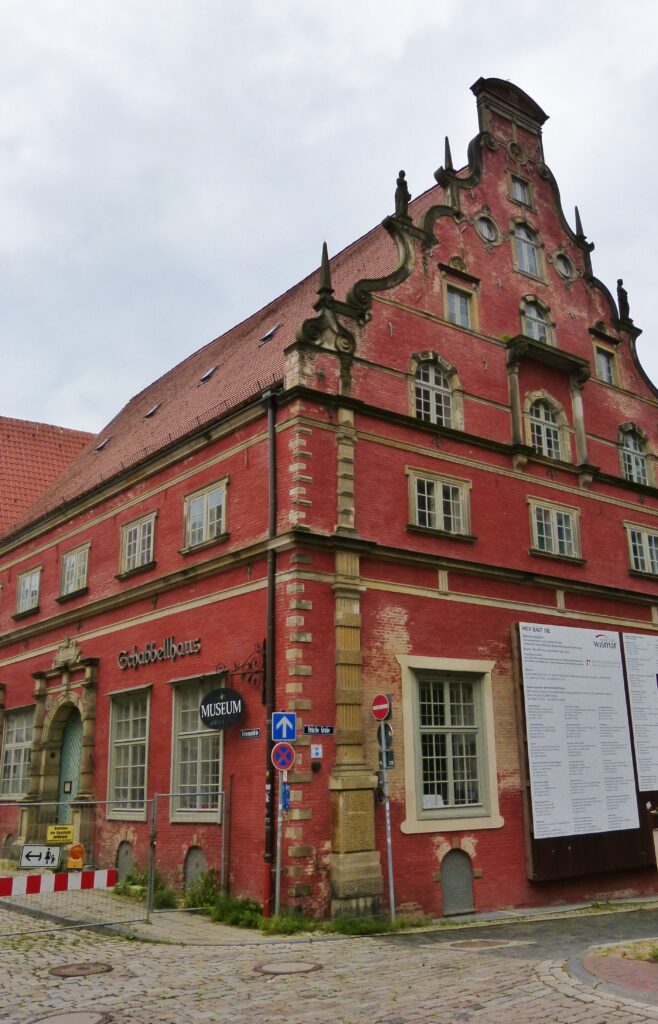
It was built in the 16th century and used to belong to Hinrich Schabbell, former Mayor of Wismar. It’s called Schabbellhaus after ol’ Hinrich.
You may remember from the Stralsund and Lubeck posts that the most stunning Brick Gothic architecture you see in these cities is in the form of churches. In Wismar, the biggest church is Sankt Nikolai.
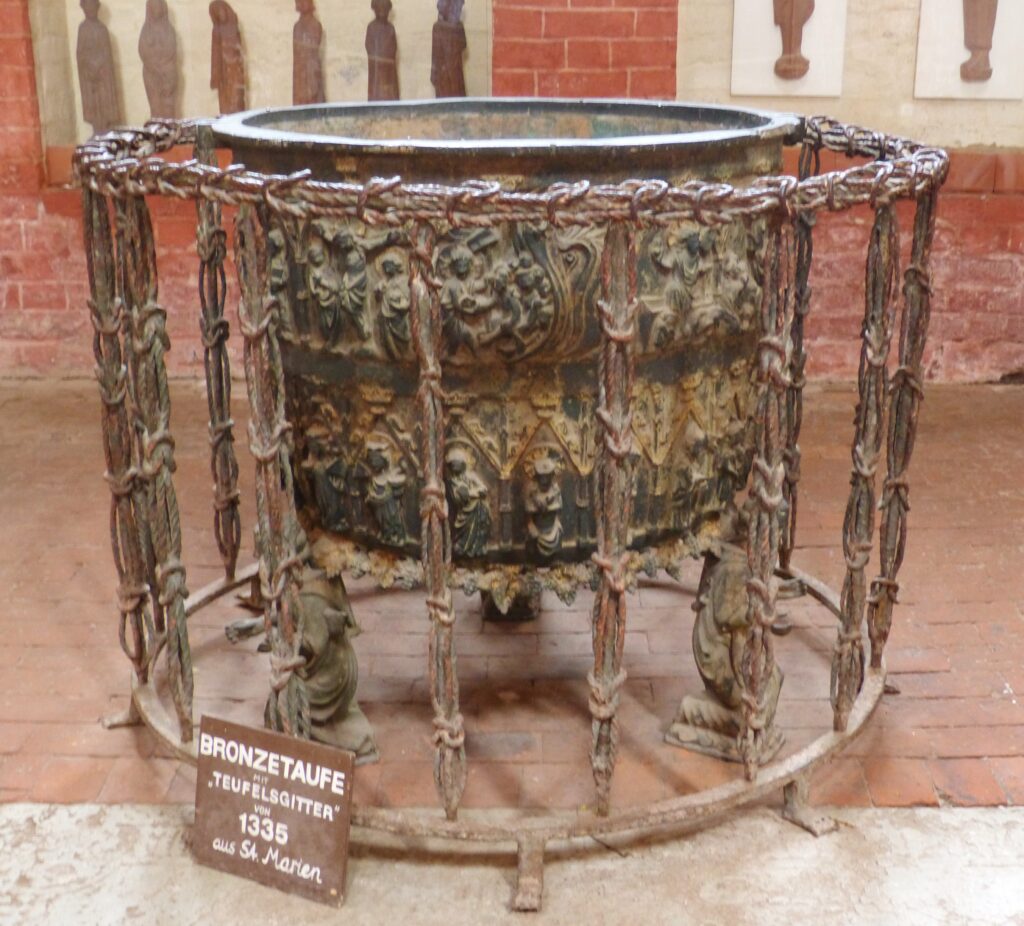
It is the second highest brick basilica in the world (the largest is in Lubeck) and the interior is filled with amazing treasures. The baptismal font you see above is from the year 1335. The trellis around it was put up about 100 years later to keep evil forces away from the baptismal water.
This structure is called the Wassertor or Water Gate.
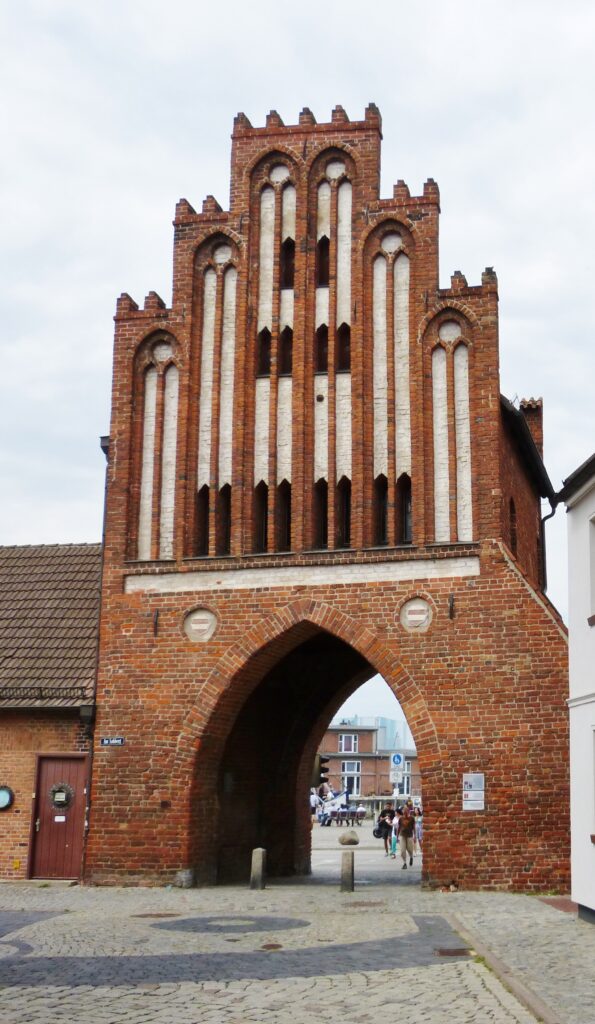
It’s the only remaining gate of the city’s original five.
Stepping through the gate, you end up at the old harbor area.
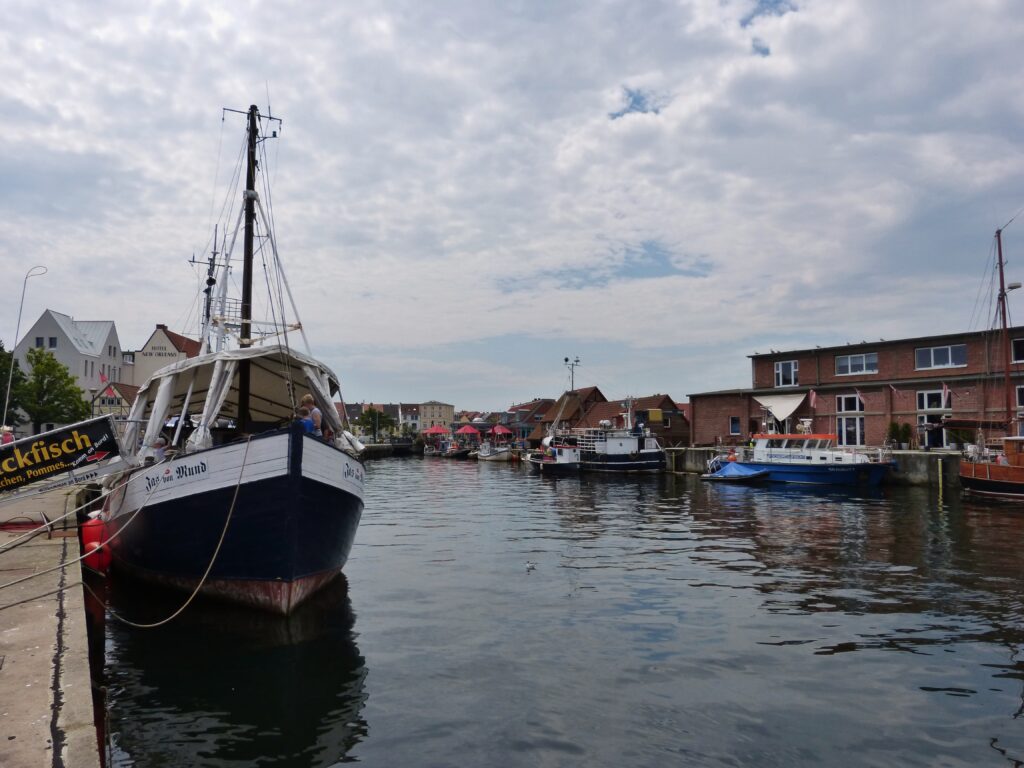
We stopped at this point to eat and drink at a place called Brauhaus am Lohberg.
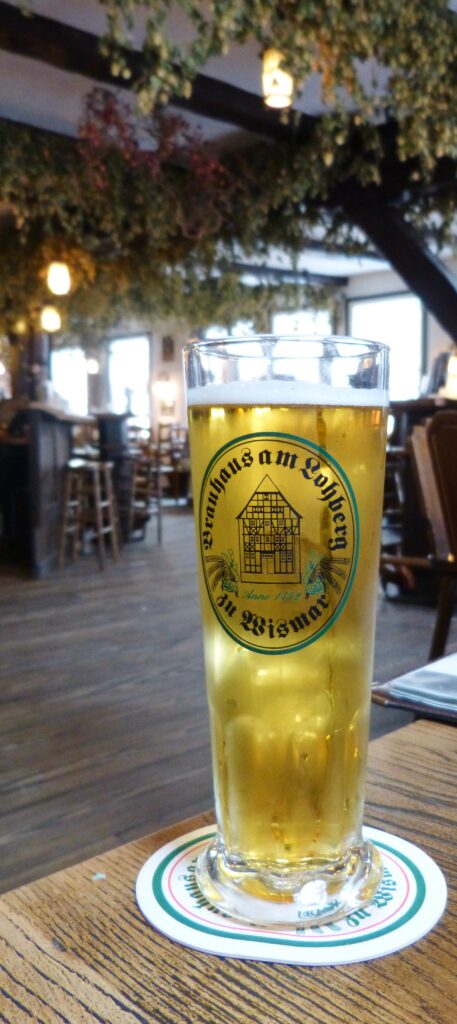
Sean had the Tipple of the Day shown above. The restaurant’s name indicates that it’s a brewery on a square called Lohberg, so of course they serve their own beer and Sean said it was tasty.
I had salmon for lunch.
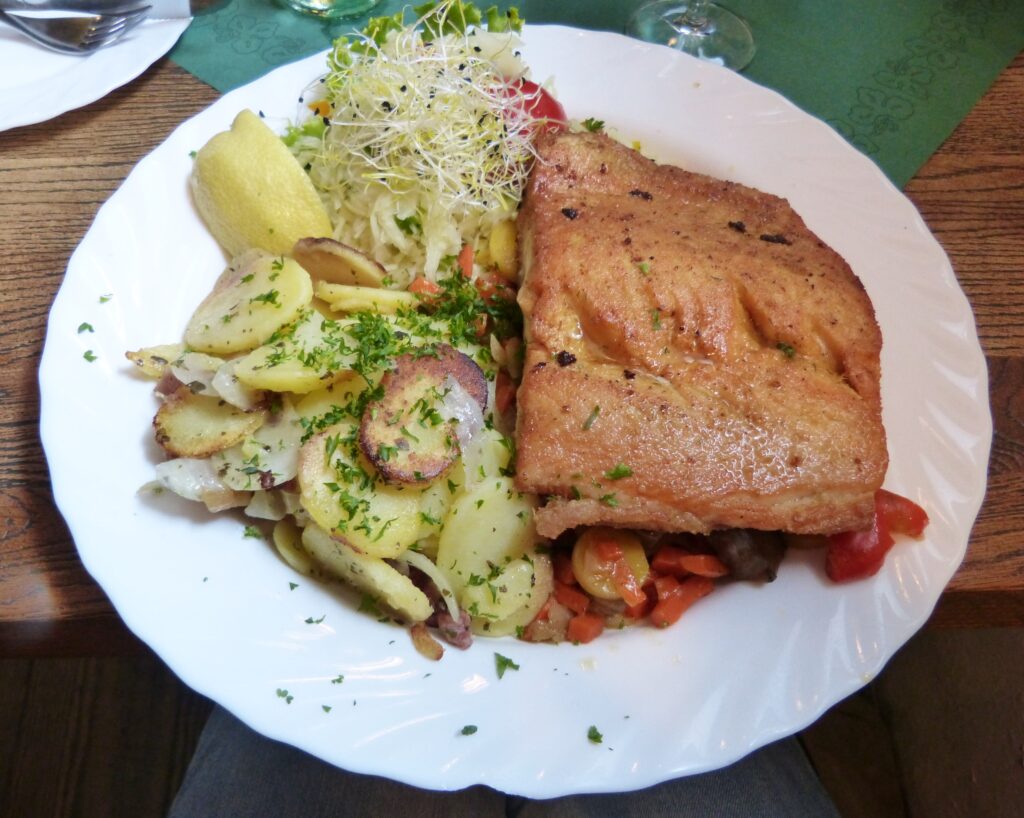
Honestly I’ve never gotten such a huge portion of salmon for any meal anywhere. There’s no way you could eat that entire meal. Sean will normally polish off whatever I don’t eat but after his own gigantic lunch even he couldn’t finish off my serving. I did eat all the salmon but after that I hardly touched the potatoes or veggies. If nothing else you certainly get your money’s worth at that place.
This house was right near the restaurant.
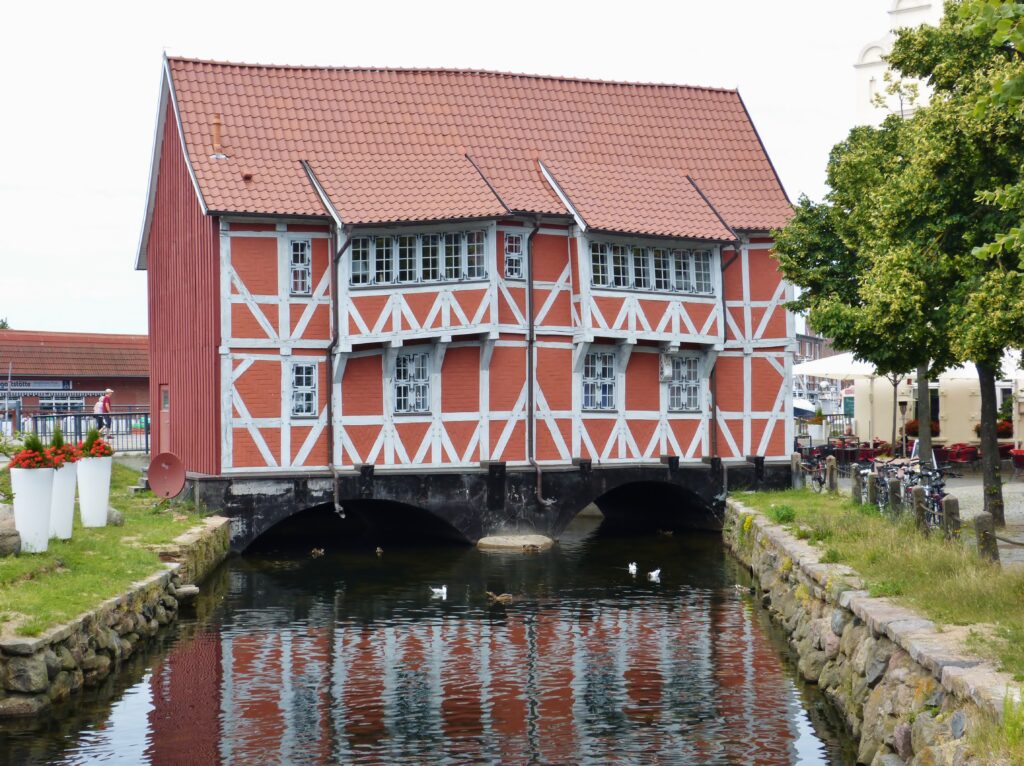
I’m not even sure what it is but I liked the looks of it. It appeared to be a place you could rent out short term.
Here is the Church of the Holy Ghost.
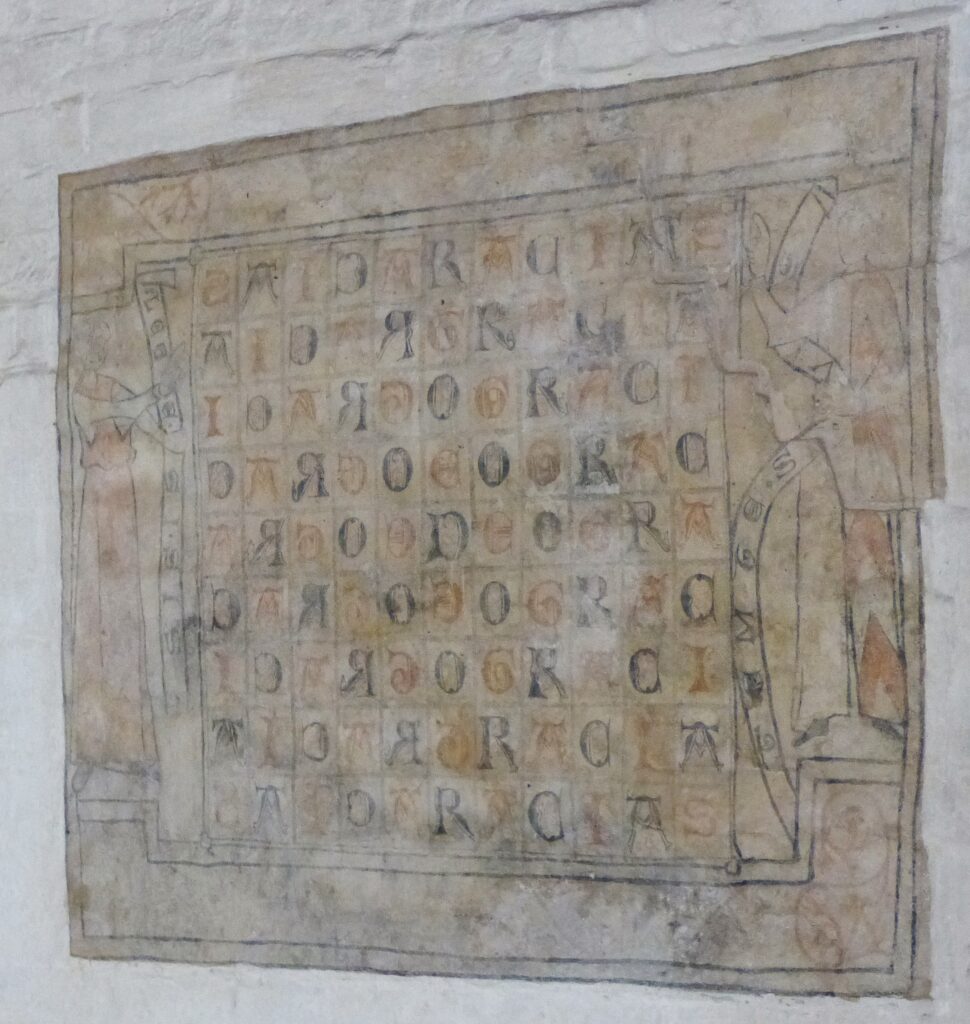
I chose to post that photo from the church because it’s something I’ve never seen before. It’s sort of a word jumble with only one phrase – DEO GRACIAS, meaning “thank God”. You can see the letter D in the center and that’s the only D. Supposedly you can go from there in any direction to spell DEO GRACIAS and come up with 504 versions. I took their word for it.
The volunteer at that church was the friendliest, happiest volunteer I’ve ever seen. He was a young-ish, muscle-y guy with long, bleached-blonde hair who you’d expect to see on a beach with a surfboard. He truly seemed thrilled to be standing there handing out information about the church, taking donations and selling religious items. It was nice to see.
The courtyard seen here is called Princes’ Court.
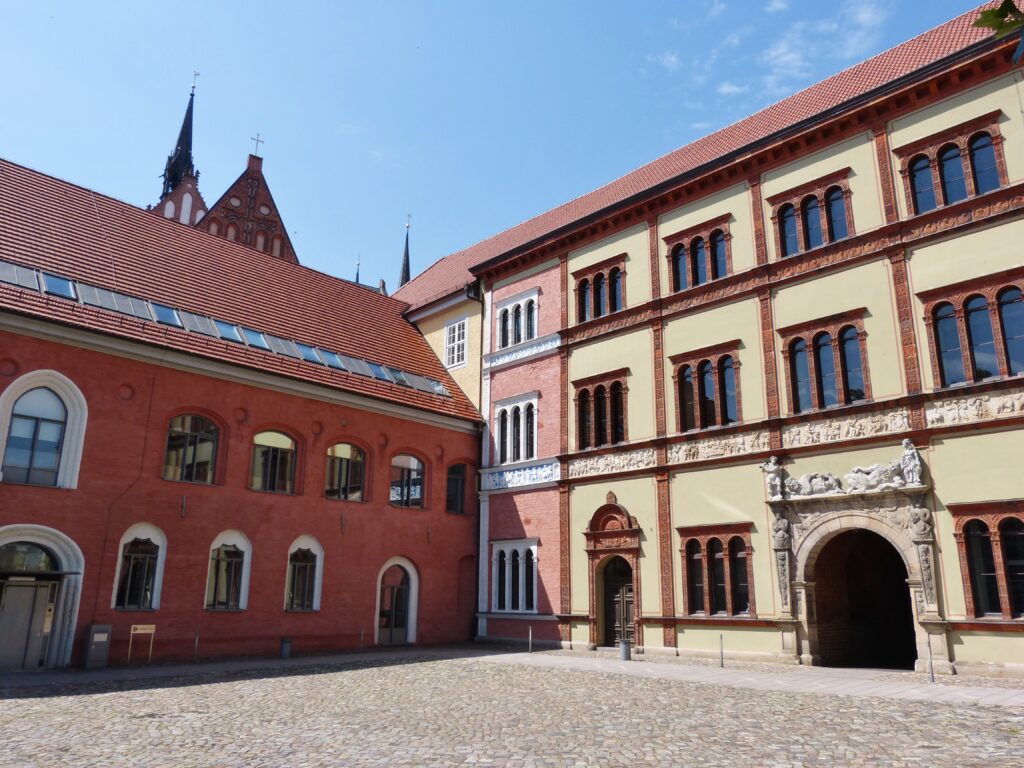
You can see how different the two wings of the building shown there are, even though they were built only 40 years apart. The building now houses the seat of the county court of Wismar but formerly belonged to the Dukes of Mecklenburg.
This tower, over 260 feet high, is all that remains of St. Mary’s church.
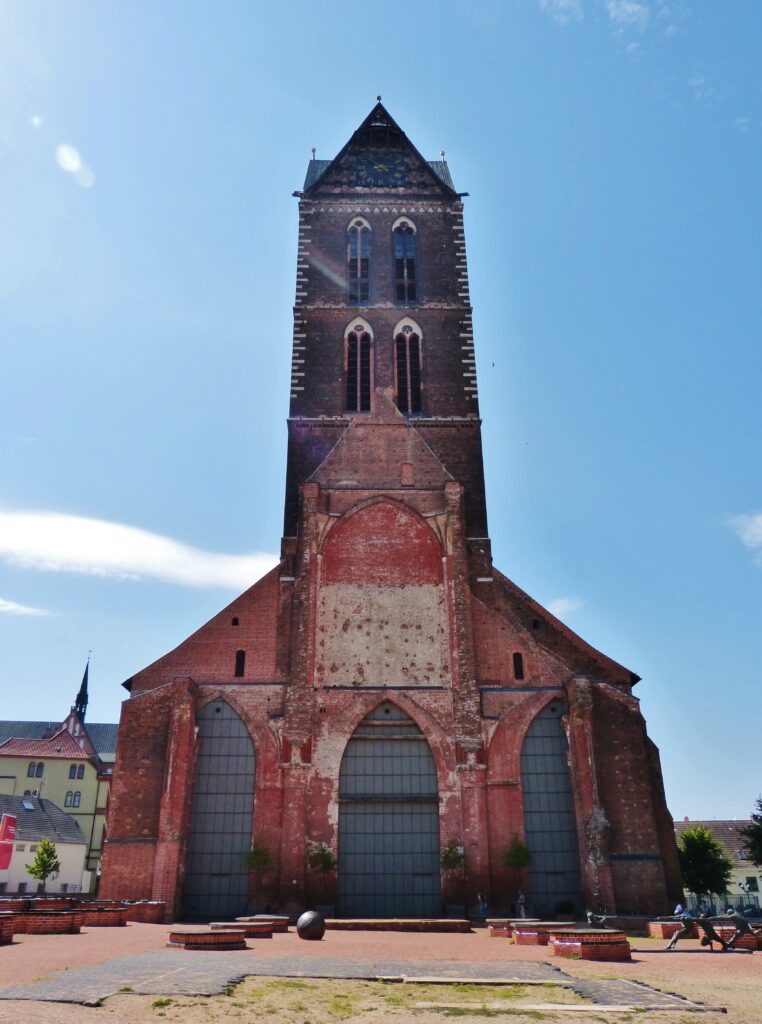
The church was built in the 14th century, sustained bomb damage during World War II and was then demolished in 1960. The tower is so tall that at one point it served as a navigation point for sailors.
This quirky little doorway is from a building called Alter Schwede or The Old Swede.
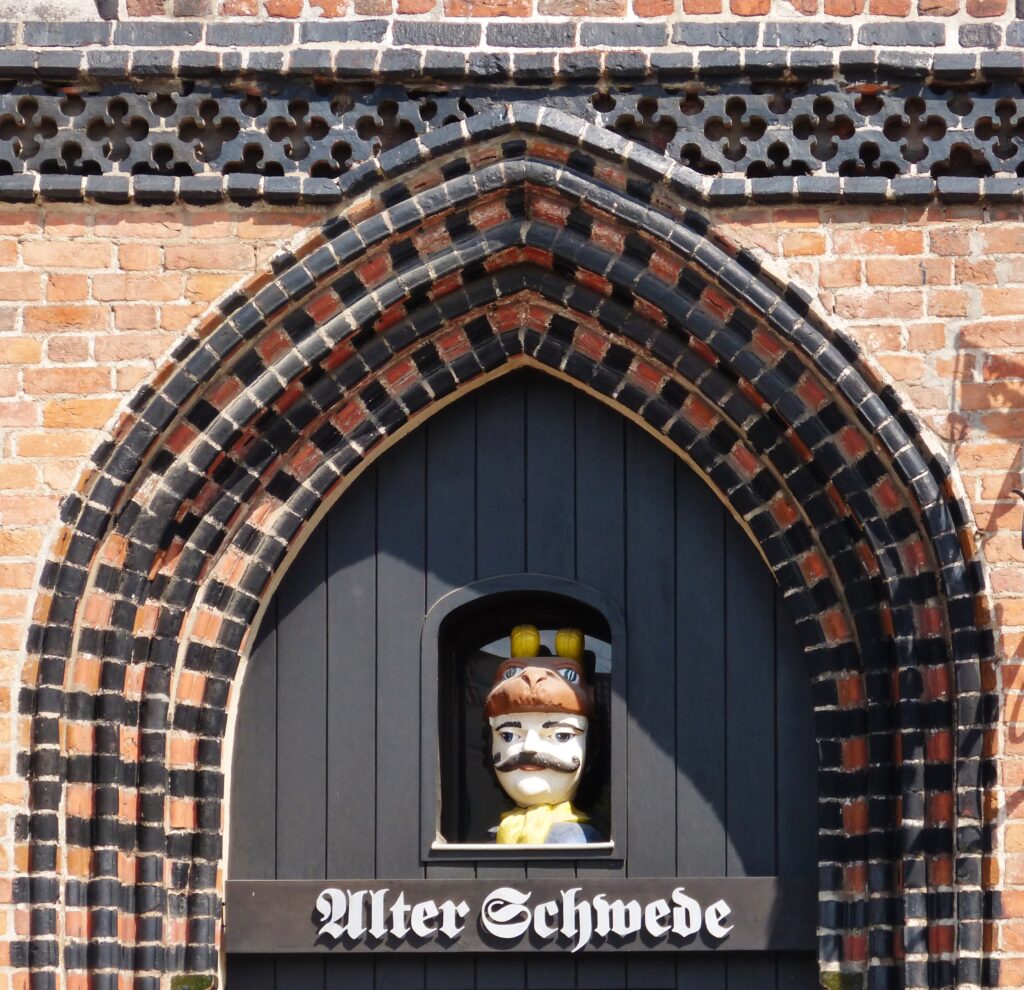
It was built around 1380 and was given its name in 1878 by a catering business located in the building. Wismar belonged to Sweden from 1648 to 1903.
The lovely structure seen here is the Pumping Station.
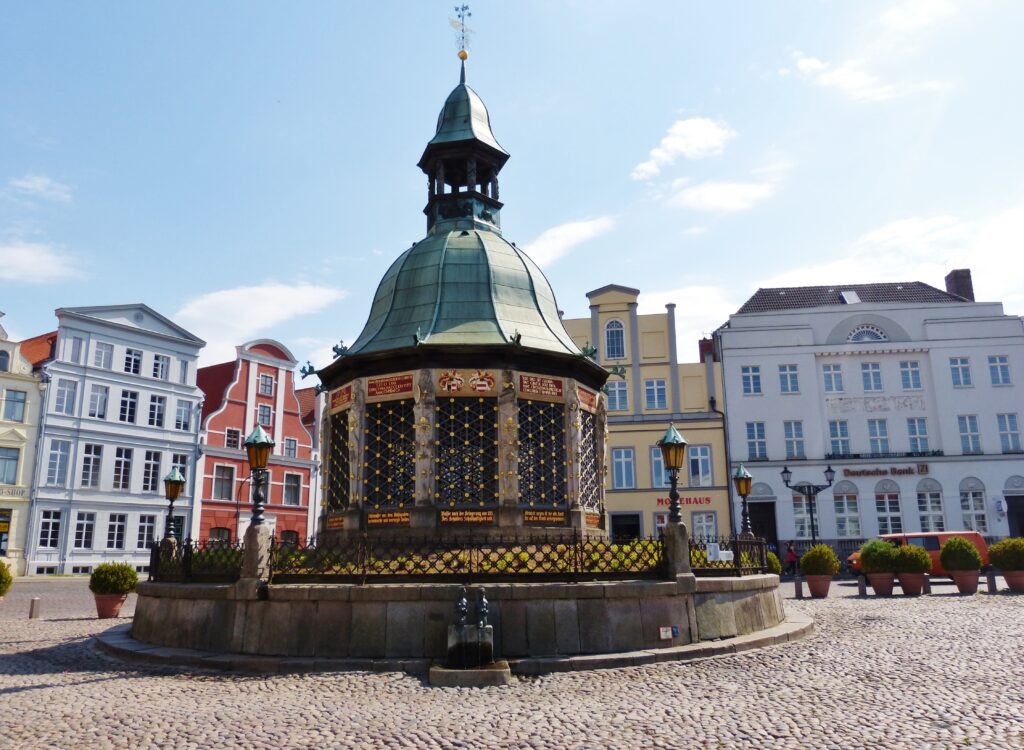
Centuries ago it provided Wismar’s drinking water.
After visiting Wismar, we drove back to Lübeck to relax at the hotel for a little while and then drove to the seaside resort of Travemünde.
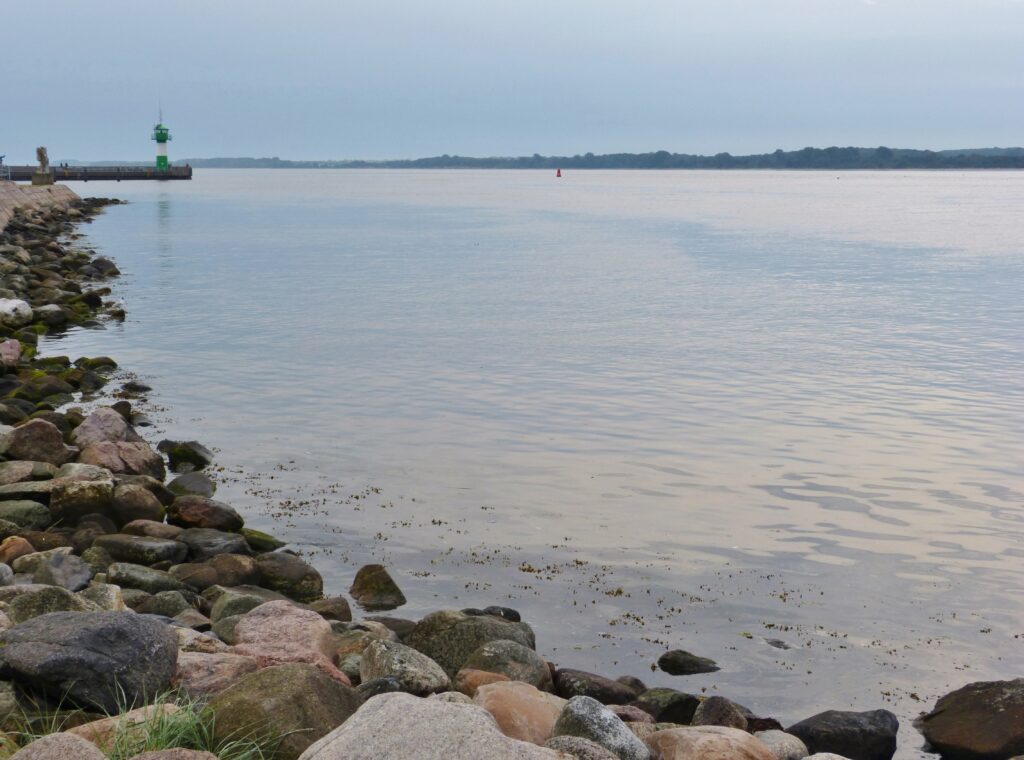
That little lighthouse is the oldest one on the German Baltic coast.
It was unfortunately rainy during our visit but we still took a walk along the promenade.
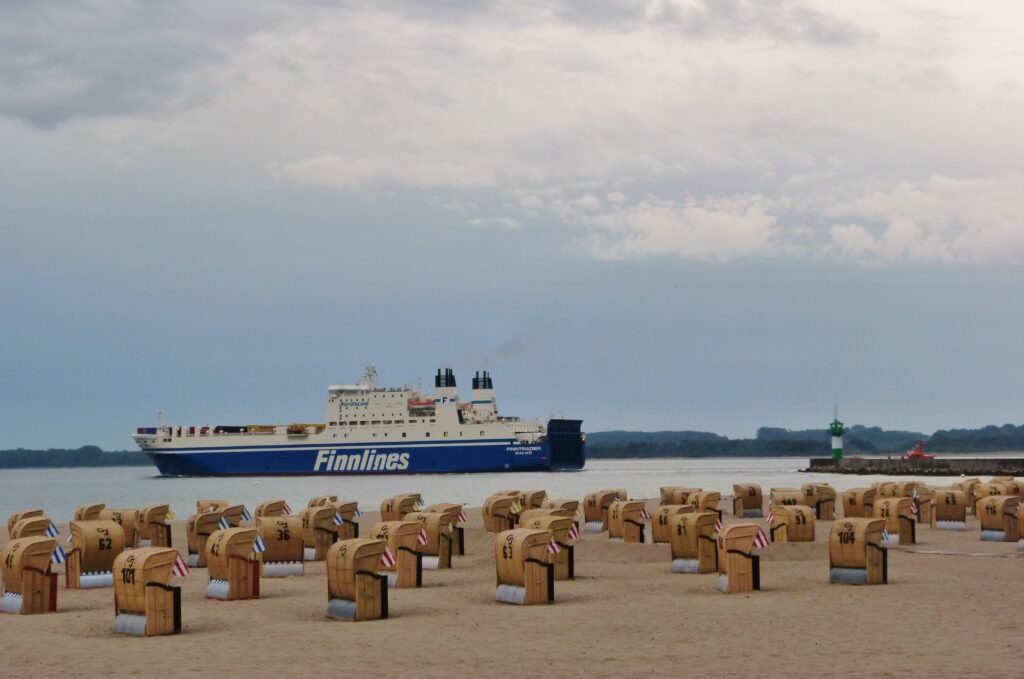
Travemünde, which is actually part of Lübeck, is the largest ferry port on the Baltic. There is a lot of other ship traffic in the area as well. The ship in that photo sort of looks like a toy boat but it was amazing to see it coming around the bend in the coast where the lighthouse is. It was so huge and so close to the coast that it looked like it was coming right up onto the beach.
The covered, wicker chairs you see are for rent.
There was a festival taking place on the promenade and the weather really put a damper on it but people were still drinking at the beer truck!

Others were dancing to live music or having a bite to eat but it was pretty subdued overall.
I’d like to live in this little beachside cottage, please.
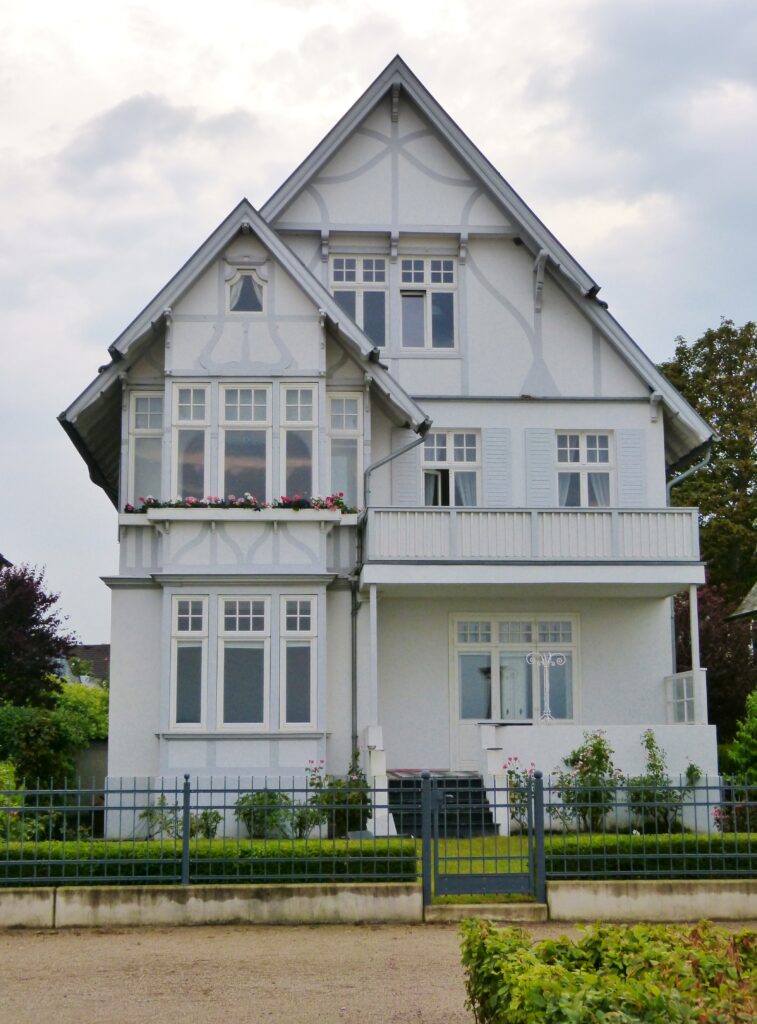
The last photo of the trip is of Sean glaring at me having a good time bouncing around on these little trampoline-like things.
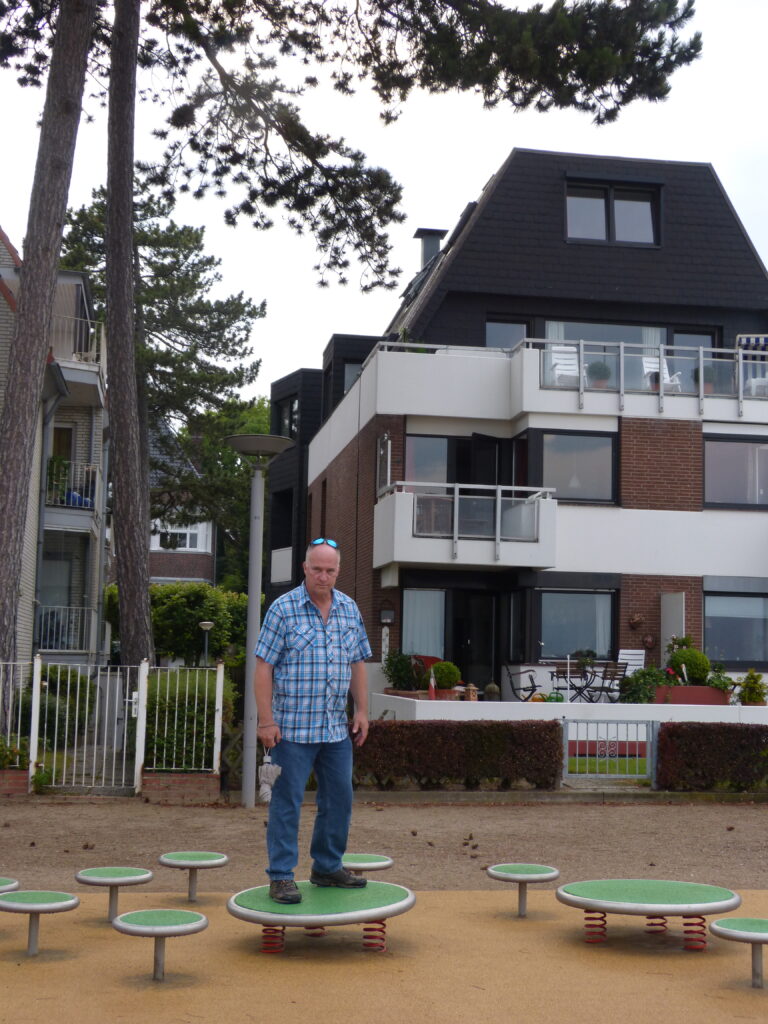
We were both very impressed with everywhere we visited in northern Germany and in fact Sean said it was probably the best trip we’d done in Germany.
Do you have any recommendations for other places to visit in northern Germany?

